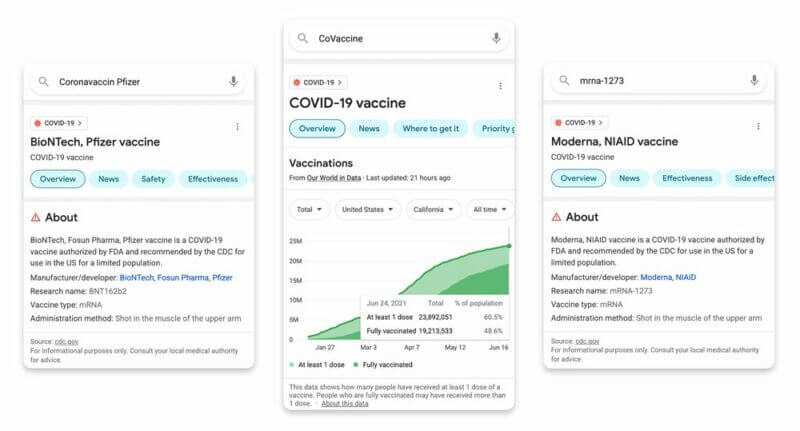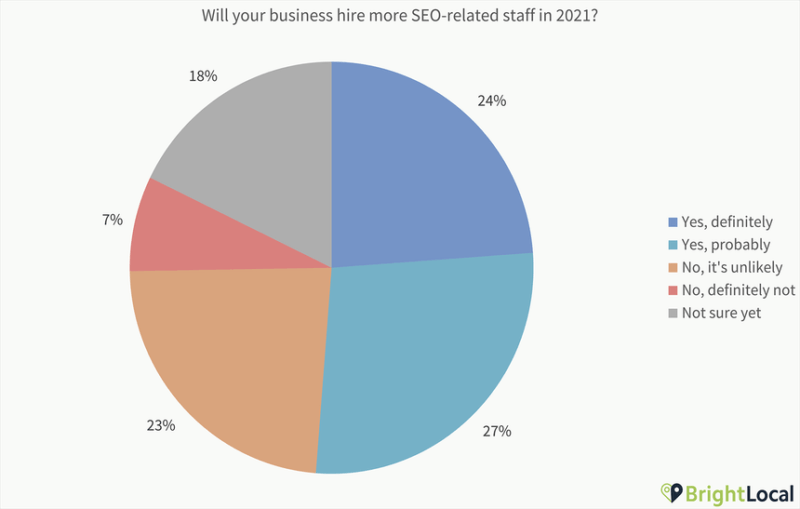Search Engine Land’s daily brief features daily insights, news, tips, and essential bits of wisdom for today’s search marketer. If you would like to read this before the rest of the internet does, sign up here to get it delivered to your inbox daily.
Good morning, Marketers, what would you do with another year to prepare for third-party cookie deprecation? Or another year to prepare for FLoC?
I’ve included responses from #PPCchat participants to the question above in our Shorts section. But, I want to hear from you, whether you’re in-house or at an agency: Does this change your plans?
Two years is a long time, but with widespread pushback against FLoC and constant regulatory scrutiny, is it a good idea to make specific plans so far out? The conventional wisdom seems to be to start amassing first-party data, but since there’s much less urgency, are your clients dragging their heels? What other considerations are top-of-mind?
I’m sure you have thoughts and/or plans, and I’ve made room in my inbox for all of them — don’t hold back. Send me an email at gnguyen@thirddoormedia.com (subject line: That’s how the cookie crumbles).
George Nguyen
Editor
In its first application, Google’s MUM identified 800 variations of vaccine names across 50 languages in seconds

Google gave us a glimpse of its Multitask Unified Model (MUM) technology at its I/O event just six weeks ago, and on Tuesday, the company revealed its first application: identifying over 800 variations of vaccine names in over 50 languages. And, “MUM was able to do a job that should take weeks in just seconds,” the company wrote in a blog post.
Why we care. This announcement provides us with a better idea of real-world use cases for MUM. However, one of MUM’s most touted capabilities was understanding multiple modalities (understanding text, images and video), which we’ve yet to hear more about — if Google can deliver on this the way it was advertised at I/O, it may enable users to search in ways that they previously thought were too complex for search engines to understand. Even if it doesn’t have as splashy an impact, the efficiency displayed here (i.e., doing “weeks” worth of work in seconds) will still provide Google with another advantage over competitors.
Google’s help guide on redirects and Google Search updated
Google’s been updating its help documents: Last week, the company published a new guide to HTTPS status codes and DNS/network errors and yesterday it expanded its document on redirects and Google Search. The updated version goes into much greater detail, including robust sections on why redirects are important and how each type of redirect is handled.
Why we care. Having these clear and detailed guidelines around how Google Search handles various redirects is very handy. You can now be more informed on how your server and development team should implement certain redirects in various situations. This should be another go-to guide for your team when implementing redirects.
Google adds new verification for financial services advertisers in the UK
To keep searchers safe and fight spam for publishers and advertisers, Google is introducing a new verification process for financial services advertisers in the UK. Beginning August 30, UK search marketers will need to partake in a two-step process to be certified to show their ads to searchers:
- Apply for verification through the UK Financial Conduct Authority Authorization.
- Submit identity verification documentation in addition to providing the UK FCA authorization for your business.
The policy will be updated on August 30, 2021, and enforcement will begin seven days later, on September 6, 2021. If your account violates these policies, you’ll first receive a warning and will have up to seven days to fix the issue before your account is suspended.
Why we care. Ensure you meet the verification requirements to distinguish yourself from spam financial service advertisers and to prevent suspension before the September deadline.
51% of local marketers say their business will hire more SEO staff this year

As we continue the steady march towards post-pandemic life, local marketers shared diverse experiences and outlooks in BrightLocal’s Local Search Industry Survey 2021. More than half (51%) of the 550 local marketer respondents said their business would probably or definitely hire more SEO-related staff this year, while 18% are unsure and 30% said they wouldn’t be doing so. However, it’s not clear whether these hirings will be to fill new positions or simply to get back to pre-pandemic levels of employment.
When it comes to revenue and clients, the experiences were a bit more mixed: 43% of local marketers’ businesses grew their revenue during the pandemic and 31% said clients paused their marketing efforts. A quarter (25%) of respondents said they earned more clients and an almost equal proportion (24%) said they lost clients. Thankfully, only 17% said they lost revenue. It’s clear that the impacts of the pandemic weren’t evenly distributed, but for a period that has been referred to as the worst economic recession since the Great Depression, these numbers aren’t as discouraging as some might have expected.
The even-slower death of third-party cookies, ask Googlers directly and a spam update meme for good measure
Third-party cookie deprecation has been delayed, does that change anything? That was question #3 during #PPCchat on Tuesday. Brett Bodofsky said he’d focus on getting GA4 going for his clients, Julie Bacchini urges marketers to prepare with first-party data and GA4, Steve Hammer emphasizes soft conversions and the full-funnel, while Jon Kagan is just happy to ride the gravy train a bit longer.
Get your Google Search-related questions answered on the SOTR podcast. Google’s Gary Illyes is soliciting questions to discuss on the Search Off the Record podcast, which he hosts with John Mueller and Martin Splitt.
You may have heard another spam update rolled out this week. If you don’t spam, you should have nothing to fear, right?
http://feeds.searchengineland.com/~r/searchengineland/~3/gGYBC0Qlv4o/so-google-gave-you-another-year-to-prepare-for-the-cookiegeddon-now-what-thursdays-daily-brief-350170


